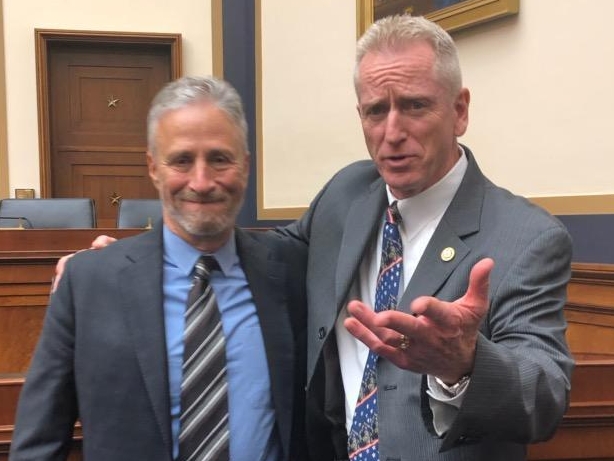An essential health scheme that offers yearly health checks and therapy for conditions linked to the 9/11 disaster for survivors and emergency responders is under threat due to severe federal cuts. The 9/11 community, comprised of survivors, emergency service workers, and advocates, reached out to Congress for support on Monday. This call for help comes after the Department of Government Efficiency slashed significant funding from the program.
Retired FDNY Deputy Chief Richard Alles expressed his displeasure openly: ‘Today is not a good day for me.’ The reason being the funding decreases to NIOSH, a federal agency that oversees numerous programs. These include the health and occupational safety for American workers as well as the World Trade Center Health Program, which took numerous years of advocacy to establish.
The health scheme, overseen by the National Institute for Occupational Safety and Health, part of the Centers for Disease Control and Prevention, serves essential functions for the 9/11 survivors and responders. It ensures access to cost-free annual health examinations and treatment for health conditions directly linked to the 9/11 event.
Thousands of individuals, much like Alles himself, were inevitably exposed to the dangerous toxins released into the atmosphere in the aftermath of the terror attacks on 9/11. The long-term effects of this exposure are now apparent, with the World Trade Center Health Program linking these toxins to over 69 different ailments, encompassing numerous forms of cancers.
Earlier this year in February, the Department of Government Efficiency undertook a significant downsizing. As a result of this restructuring, the WTC Health Program lost numerous staff members. Advocates of the program, including Alles, first responders, survivors, and other supporters caution that these reductions may hinder the provision of life-saving treatment to the over 130,000 individuals currently enrolled in the program.
Alles, along with the program advocates, is fighting a difficult battle to ensure the preservation of the vital health scheme. The program is much more than just a health plan – it’s a safety net for thousands of survivors’, spread across the country. Alles doesn’t hold back in expressing how critical the situation is, labeling it a ‘national predicament.’
Alles emphasized, ‘This isn’t solely a New York issue.’ The terrorists targeted the World Trade Center not necessarily because it was in New York, but because it stood as a visible symbol of American democratic ideals. The first responders did not limit themselves to New York alone, they came from every corner of the nation. Thus, this is a problem that impacts every single state in the country.
To provide individual representatives with an understanding of the scale of the issue within their territories, Alles and his team have been gathering numbers from each state. ‘We will present these figures from every state to the respective representatives, showing them the magnitude of the impact this program has on their constituents,’ Alles reiterated.
Amongst his planned strategic discussions was a meeting with the team of Representative Eric Swalwell from California. Swalwell’s district had 14 enrollees in the program and the state of California was home to more than 900 program participants. Thus, allowing for a concrete manifestation of the impact weeds down to individual districts as well as on a state level.
Alles intends to garner tangible backing in the form of increased program funding and additional support from lawmakers, including co-sponsors, for the legislation ensuring long-term funding for the program.
For Alles, and countless others like him, the World Trade Center Health Program is more than just a health initiative. It represents a solemn promise to the first responders and survivors. A belief that their sacrifices were not in vain and that their country stands by them, providing crucial health-related support without allowing financial barriers to impede access.
However, the troubling budget cuts unleash doubts about the solidity of this commitment. The consequences of isolation and exclusion can be devastating for those affected and may severely jeopardize their health outcomes. As the program is much more than a health service, the potential impact extends beyond health, potentially impacting financial and emotional stability for the participants.
The fight is on for Alles and his companions. With the tally of affected people from each state in hand, they embark on a campaign to remind lawmakers across the country of the program’s significant repercussions. Every voice matters, from the smallest district to the highest level of Congress.
The ongoing struggle serves as a poignant reminder of the trials and tribulations encountered by first responders and survivors. However, it’s also a testament to resilience and solidarity. It’s a symbol not only of the tragic day but of the years of recovery, unity, and the continued battle for justice that followed.
The future is uncertain, but the commitment to this cause remains unyielding. Alles, representatives, and supporters must keep the torch alight, advocating relentlessly for the restoration of the WTC Health Program’s funding even in the face of significant obstacles.

